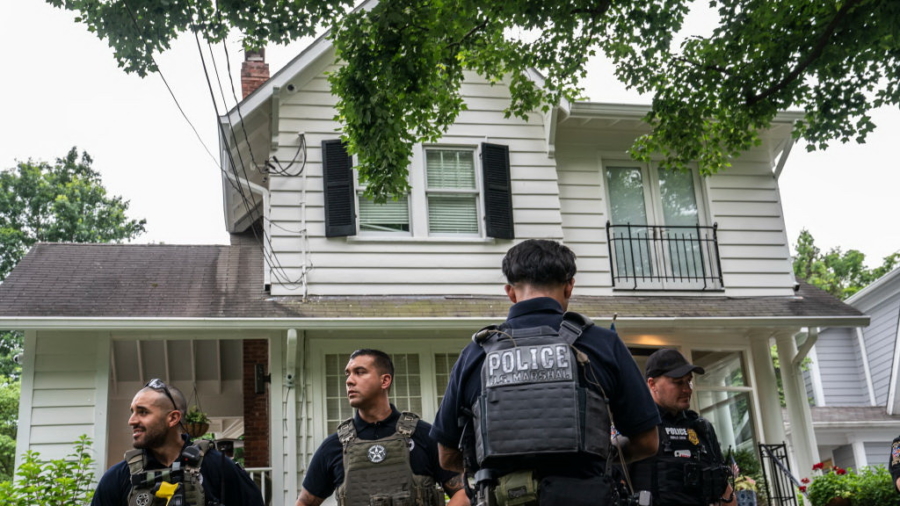United States Attorney General Merrick Garland is hoping to wind down the U.S. Marshals Service security details for U.S. Supreme Court justices and leave the task to the Supreme Court Police.
The Supreme Court justices have faced heightened security concerns following the leaking of a draft opinion overturning the Roe v. Wade abortion case. Following the leak, protests began around the homes of the justices, while a suspect was arrested on attempted murder charges for allegedly plotting to kill at least one Supreme Court justice. Hours after the Supreme Court formally issued its decision on abortion in Dobbs v. Jackson Women’s Health Organization, a 20-year-old Texas man, Mikeal Deshawn Archambault, allegedly shared a tweet indicating his intent to kill members of the Supreme Court.
Under Garland, the Department of Justice assigned the U.S. Marshals to provide added protection to the Supreme Court justices. In a Tuesday Senate hearing, however, Garland indicated that he does not intend for those added U.S. Marshal details to be assigned to the justices indefinitely.
“This is a task we’d happily turn over to the Supreme Court Police,” Garland said during his testimony. “We’re hoping this isn’t a long-term solution for the justices because there are a lot of courts around the country.”
The attorney general said the U.S. Marshals have other security and fugitive apprehension responsibilities beyond guarding the homes and families of Supreme Court judges.
In June of last year, Congress passed legislation expanding the authority of the Supreme Court Police to provide protection to the families of the justices and senior officers of the court. During the hearing, Garland noted the bill did not include any additional funding for the expanded responsibilities of the Supreme Court Police.
In their latest budget request, the Supreme Court asked for an additional $5.9 million to fund the increased security. Garland said it would cost $21 million to pay for 42 additional U.S. Marshals to provide “judicial security.”
Marshals Allegedly Dissuaded From Making Arrests
Section 1507 of Title 18 of the U.S. Code states that obstruction of justice can include “pickets or parades in or near a building housing a court of the United States, or in or near a building or residence occupied or used by such judge, juror, witness, or court officer, or with such intent uses any sound-truck or similar device or resorts to any other demonstration in or near any such building or residence.”
Protests have continued outside the homes of the Supreme Court justices in the months since their abortion ruling. In that time, Republican lawmakers and conservative organizations have asked the DOJ why no arrests have been made to enforce the federal law against protests outside the homes of the Supreme Court Justices.
In October, the Heritage Foundation filed a lawsuit against the DOJ over its apparent failure to prosecute protesters marching outside the homes of Supreme Court justices. The lawsuit specifically accused the DOJ of ignoring a Freedom of Information Act request seeking DOJ internal documents that might explain the department’s inaction against these protesters.
During a Senate hearing earlier this month, Garland testified that the U.S. Marshals had been notified of their authority to make arrests pertaining to the law against protests outside of a judge’s home, but said “the Marshals on scene make that determination” on whether to arrest people.
During Tuesday’s hearing, Sen. Katie Britt (R-Ala.) shared alleged training slides U.S. Marshals were shown that discouraged them from arresting people.
“Making arrests and initiating prosecutions is not the goal of the [Marshal Service] presence at SCOTUS residences,” one of the alleged slides said, while another advised Marshals “to avoid, unless absolutely necessary, any criminal enforcement action involving the protestors.”
Contrary to Garland’s statements that “the Marshals on the scene” make the arrest determinations, Britt argued that the alleged slides showed the Marshals on the ground were “actively discouraged” from making any arrests by higher authorities.
Garland testified that he was just seeing the slides for the first time after Britt brought them up during Tuesday’s hearing. The Attorney General also declined a call to amend his prior statements to the Senate.

